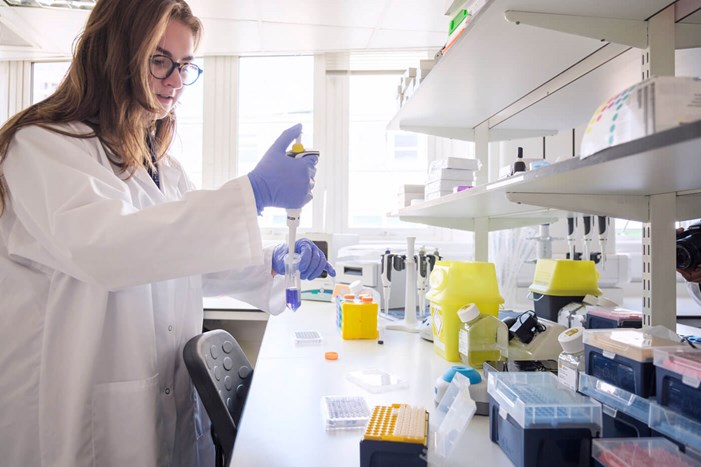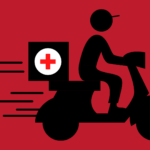Washington DC, the vibrant heart of the United States, is not only the political center of the country but also an excellent hub for aspiring medical professionals. With its world-class institutions, diverse clinical experiences, and a robust healthcare network, Washington DC has become a top choice for students pursuing medical education. But what makes this city so unique for those looking to study medicine? Let’s uncover the top reasons why Washington DC stands out as a prime location for medical studies.
1. World-Class Medical Institutions
Washington DC is home to some of the nation’s most prestigious medical schools, including George Washington University School of Medicine and Health Sciences, Georgetown University School of Medicine, and Howard University College of Medicine. These institutions are recognized for their exceptional medical programs, rigorous academic standards, and innovative research. Students have access to cutting-edge technology, modern laboratories, and top-tier faculty members, creating an environment conducive to academic excellence and medical advancement.
2. Access to Leading Hospitals and Research Centers

One of the biggest draws of studying medicine in Washington DC is the city’s proximity to leading hospitals and research centers. Students can gain hands-on experience at renowned institutions like the MedStar Washington Hospital Center, Children’s National Medical Center, and the National Institutes of Health (NIH). These hospitals and research centers provide a wealth of clinical training opportunities, allowing students to work directly with patients and researchers at the forefront of medical science.
Being situated near the NIH also opens doors for students to get involved in groundbreaking research initiatives that can shape the future of medicine. The availability of internships and clinical rotations at these institutions gives students a significant advantage as they develop their medical careers.
3. Diverse Patient Population for Clinical Experience
Washington DC’s diverse population is another compelling reason why it’s an excellent place to study medicine. The city serves as a melting pot, with people from all walks of life, different cultural backgrounds, and varying socioeconomic statuses. For medical students, this diversity means a unique opportunity to engage with a broad range of patient populations.
Students gain valuable experience working with a variety of medical conditions and challenges that reflect the needs of a diverse society. This exposure helps future doctors build cultural competency, develop more effective communication skills, and become well-rounded healthcare professionals capable of treating patients from all backgrounds.
4. Networking and Career Opportunities
Washington DC offers unrivaled networking opportunities for students in the medical field. With its central location for national healthcare policies, students have access to a vast network of medical professionals, researchers, policymakers, and public health experts. The city’s proximity to government agencies such as the Department of Health and Human Services (HHS) and the Centers for Disease Control and Prevention (CDC) also provides ample chances for students to engage in policy development and health advocacy.
Additionally, DC’s strong professional community and events, such as medical conferences, career fairs, and networking meetups, allow students to form valuable connections that can propel their careers forward. The abundance of job opportunities in the medical sector, both locally and nationally, makes Washington DC a city where students can find excellent career prospects after graduation.
5. Vibrant Student Life and Supportive Environment
Studying medicine in Washington DC doesn’t just mean an intense academic focus. The city is also home to a vibrant student life with a wide array of extracurricular activities, including medical student organizations, volunteer opportunities, and social events. Washington DC’s rich cultural scene, with its museums, theaters, and national monuments, provides students with a well-rounded experience that balances the demands of medical school with relaxation and personal growth.
Additionally, the city’s medical schools are known for their supportive environments, offering mentorship programs, counseling services, and resources to help students succeed both academically and personally. Whether you’re seeking academic guidance or a break from the pressures of medical school, Washington DC offers an environment that supports your growth as both a student and an individual.
6. Proximity to Government and Policy Makers
One of the unique aspects of studying medicine in Washington DC is the close proximity to policymakers and health-related government agencies. Students in DC have the unique opportunity to interact with influential figures in healthcare policy, shaping the future of medical practices and public health initiatives. Opportunities to participate in internships, forums, and discussions with policymakers provide students a deeper understanding of healthcare legislation and advocacy.
This close connection to government also allows students to gain insight into how healthcare systems are shaped and funded, opening up potential career paths in public health, policy-making, or healthcare administration.
Conclusion
Washington DC is more than just a city with a rich history and political influence. It is a dynamic and exciting place to study medicine, offering top-tier institutions, diverse clinical experiences, and unparalleled networking opportunities. Whether it’s the world-class medical schools, access to leading hospitals and research centers, or the supportive environment for students, Washington DC is an ideal destination for anyone looking to pursue a career in medicine.
If you’re considering a medical education, Washington DC should be at the top of your list. With its blend of academic excellence, professional growth, and cultural vibrancy, Washington DC provides the perfect foundation for aspiring medical professionals.
For more information about medical education, visit Medsniff.



